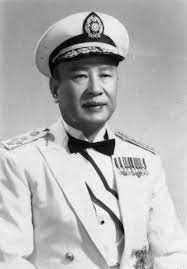Panchen Lama (1883-1 December 1937), earthly manifestation of the buddha Amitabha. When the thirteenth Dalai Lama (q.v.) was in exile (1904-9, 1910-12), the ninth Panchen was de facto ruler of Tibet. The Panchen was forced into exile by the Dalai in November 1923. The eighth Panchen Rimpoche [precious sage], the earthly manifestation of the buddha […]









